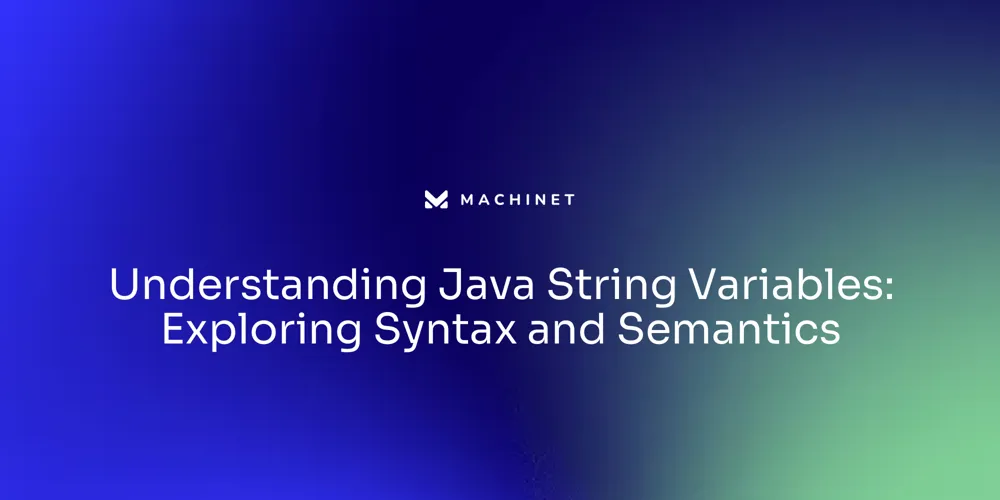
Table of Contents
- Online Platforms
- Java Programming Communities
- Java Documentation and Resources
Introduction
For those eager to dive into the world of Java programming, an array of online resources can pave the way. Platforms like freeCodeCamp.org not only offer free coding lessons but also enable learners to build projects and earn certifications. This community-led initiative has seen more than 40,000 graduates secure positions in the tech industry, showcasing the practical value of such educational platforms.
The courses cover essential web development skills, including HTML, CSS, JavaScript, and Python, and delve into advanced areas such as data science and artificial intelligence. Moreover, the self-paced nature of these courses means that learners can tailor their education to fit around their personal and professional commitments. In this article, we will explore various online platforms, Java programming communities, and documentation and resources that can help Java developers enhance their skills and stay ahead in the industry.
Online Platforms
For those eager to dive into the world of Java programming, an array of online resources can pave the way. Platforms like freeCodeCamp.
Org not only offer free coding lessons but also enable learners to build projects and earn certifications. This community-led initiative has seen more than 40,000 graduates secure positions in the tech industry, showcasing the practical value of such educational platforms.
The courses cover essential web development skills, including HTML, CSS, JavaScript, and Python, and delve into advanced areas such as data science and artificial intelligence. Moreover, the self-paced nature of these courses means that learners can tailor their education to fit around their personal and professional commitments.
In the realm of Java updates and programming techniques, new resources are constantly emerging. For instance, Oracle's release of Java 21 in September 2023 marked a significant advancement in the language's capabilities.
Notably, within six months of its release, 1.4% of applications monitored were using Java 21, a stark contrast to the 0.37% adoption rate of Java 17 in a similar timeframe. This underscores the importance of staying updated with the latest Java versions, which are integral for developers looking to enhance their skills and employability. With a nearly 300% growth rate in one year, Java 17's adoption in production environments speaks to the language's steady relevance and the tech community's endorsement. Interactive lessons, video tutorials, and coding projects offered by platforms such as Codecademy, Udemy, Coursera, and Pluralsight complement these learnings, providing a structured path from Java basics to more advanced concepts. As highlighted by industry experts, 'Yes, you can learn Java in 9 months,' emphasizing the practicality of boot camps and intensive courses for those seeking a comprehensive understanding of back-end development. With dedication, even complex programming languages and frameworks become manageable, opening doors to myriad career opportunities in the tech sector.

Java Programming Communities
For Java developers seeking to enhance their skills and stay ahead in the industry, engaging with Java programming communities is incredibly beneficial. Platforms such as Stack Overflow and Reddit /r/java are buzzing with discussions on the latest Java trends, offering insights into new features like virtual threads introduced in Java 21.
These communities are not just about solving immediate problems; they also serve as hubs for learning and discovering growth opportunities in Java development. Java User Groups (JUGs) and Java Discord servers are equally important for networking and connecting with peers.
For example, the Java Heroes event in Singapore showcased the importance of community engagement in technology. By participating in these groups, developers can find mentorship and collaborate on open-source projects, which is a key trend in the Java landscape for 2023.
Collaboration in such environments is crucial for refining problem-solving skills and understanding complex codebases, as evidenced by the collaborative efforts to upgrade microservices from old Java EE APIs to modern Java frameworks. Moreover, these communities often discuss optimization and debugging techniques, such as managing CPU and memory usage at runtime, which are essential skills for developers. The statistics show a wide range of topics covered in Java forums, from data processing and file handling to emulation of syntax features from other languages, highlighting the diverse learning opportunities available. By joining these communities, Java developers can tap into a wealth of knowledge and experience, ensuring they remain valuable assets in the ever-evolving tech industry.

Java Documentation and Resources
For Java developers, staying updated with the language's evolution is imperative. The Oracle Java documentation serves as a cornerstone, providing deep insights into Java syntax and core libraries.
It's complemented by the Java API documentation, which is critical for understanding the specifications of Java SE Platform changes, where APIs can be added or deprecated. The release of JDK 10 marked a shift to a date-driven release model, with new versions every six months, offering a mix of new features and bug fixes.
Every two years, a new LTS version is introduced, focusing on stability, security, and performance—key factors for developers considering upgrades. To deepen practical Java knowledge, developers turn to a variety of books and resources.
Practical guides like 'Head First Java, 3rd Edition' are lauded for their interactive approach, ideal for beginners. For those preparing for interviews or seeking to clarify Java intricacies, 'Cracking the Java Coding Interview' provides concise and targeted knowledge.
Moreover, tackling real-world projects and testing theoretical concepts is recommended, with tools like IntelliJ IDEA's Onboarding Tour facilitating hands-on experience. Java's robustness is exemplified in its LTS versions, like Java 21, which introduced virtual threads, a feature aimed at maximizing server throughput.
Despite being the latest iteration, Java 21's adoption was driven by its reliability and the cost efficiencies it offers. Similarly, the newer Spring Boot 3.x derives from a lineage of well-tested frameworks, proving that conservative choices in technology can still bring innovation. According to an annual report analyzing the Java ecosystem, the most popular Java versions in production reflect a blend of long-standing versions and recent releases, underscoring the community's preference for reliable and secure updates. Machinet.net complements these resources by focusing on the crucial aspect of unit testing for Java developers. It offers guidance on best practices, including how to effectively use Mockito for creating mock objects and JUnit for asserting test conditions. The platform's AI assistant can expedite the creation of unit tests, which is essential for identifying bugs early and ensuring the delivery of robust software. With comprehensive resources on JUnit annotations and assertions, Machine.net is a valuable addition to a developer's learning toolkit, particularly for those aiming to master unit testing in Java.

Conclusion
In conclusion, the world of Java programming offers a multitude of online resources to enhance skills and stay ahead in the industry. Platforms like freeCodeCamp.org provide free coding lessons, projects, and certifications. Staying updated with the latest Java versions is crucial for employability.
Engaging with Java programming communities like Stack Overflow and Reddit /r/java offers insights, networking opportunities, mentorship, and collaboration on open-source projects. Java documentation serves as a cornerstone for deepening practical knowledge. Books like "Head First Java" and "Cracking the Java Coding Interview" provide interactive approaches for beginners and concise knowledge for interview preparation.
Machinet.net complements these resources by focusing on unit testing for Java developers. It offers guidance on best practices using Mockito and JUnit. By utilizing these platforms, engaging with communities, staying updated with documentation, and leveraging additional resources like Machinet.net, Java developers can continuously enhance their skills in the ever-evolving tech industry.
AI agent for developers
Boost your productivity with Mate. Easily connect your project, generate code, and debug smarter - all powered by AI.
Do you want to solve problems like this faster? Download Mate for free now.




